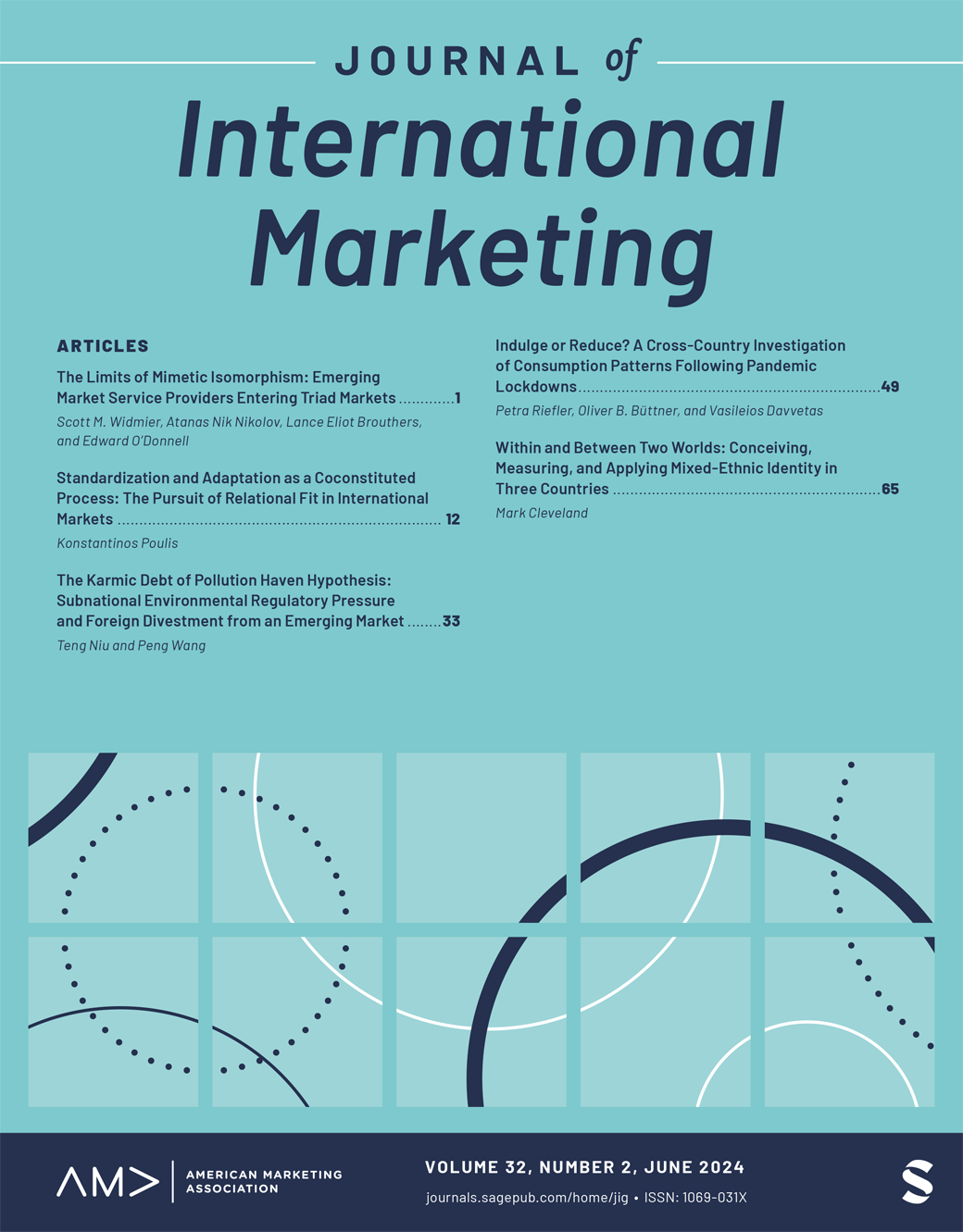做好事的坏事:国家和公司层面的企业透明度是否会影响企业社会责任的有效性?
IF 4.9
2区 管理学
Q1 BUSINESS
引用次数: 13
摘要
许多研究认为,企业社会责任(CSR)有助于企业与消费者建立牢固而积极的关系。然而,为什么某些公司在企业社会责任活动中比其他公司更有效,这一点还没有得到很好的理解。一些研究将这种差异归因于国家环境,但结果尚无定论。本研究以信号理论为基础,探讨企业透明度作为企业社会责任活动对消费者-品牌关系影响的边界条件。在三个国家进行的三项实验和一项大型调查研究了缺乏企业透明度如何破坏企业的社会责任努力。重要的是,作者的理论是,国家环境在透明度方面存在差异,从而反映在不同的公司透明度水平上。不同的国家透明度水平有助于解释企业社会责任有效性在增加品牌依恋和建立消费者行为方面的差异。最后,作者将企业社会责任在企业透明度低的情况下的递减效应与消费者怀疑的增加联系起来。本文章由计算机程序翻译,如有差异,请以英文原文为准。
A Bad Job of Doing Good: Does Corporate Transparency on a Country and Company Level Moderate Corporate Social Responsibility Effectiveness?
Numerous studies argue that corporate social responsibility (CSR) helps companies build strong and positive relationships with consumers. However, it is not well understood why certain companies are more effective in their CSR activities than others. Some studies have attributed this difference to the country setting, but results are inconclusive. Building on signaling theory, this study explores corporate transparency as a boundary condition of the effects of CSR activities on the consumer–brand relationship. Three experiments and one large survey across three countries examine how a lack of corporate transparency undermines firms’ CSR efforts. Importantly, the authors theorize that country environments differ in terms of transparency, which is then reflected in different levels of corporate transparency. Different country levels of transparency help explain the discrepancies of CSR effectiveness for increasing brand attachment and building consumer behavior. Finally, the authors tie the diminishing effect of CSR in the case of low corporate transparency to an increase in consumer skepticism.
求助全文
通过发布文献求助,成功后即可免费获取论文全文。
去求助
来源期刊

Journal of International Marketing
BUSINESS-
CiteScore
8.70
自引率
17.20%
发文量
28
期刊介绍:
As the globalization of markets continues at a rapid pace, business practitioners and educators alike face the challenge of staying current with the developments. Marketing managers require a source of new information and insights on international business events. International marketing educators require a forum for disseminating their thoughts and research findings. Journal of International Marketing(JIM) is an international, peer-reviewed journal dedicated to advancing international marketing practice, research, and theory. Contributions addressing any aspect of international marketing management are published each quarter.
 求助内容:
求助内容: 应助结果提醒方式:
应助结果提醒方式:


